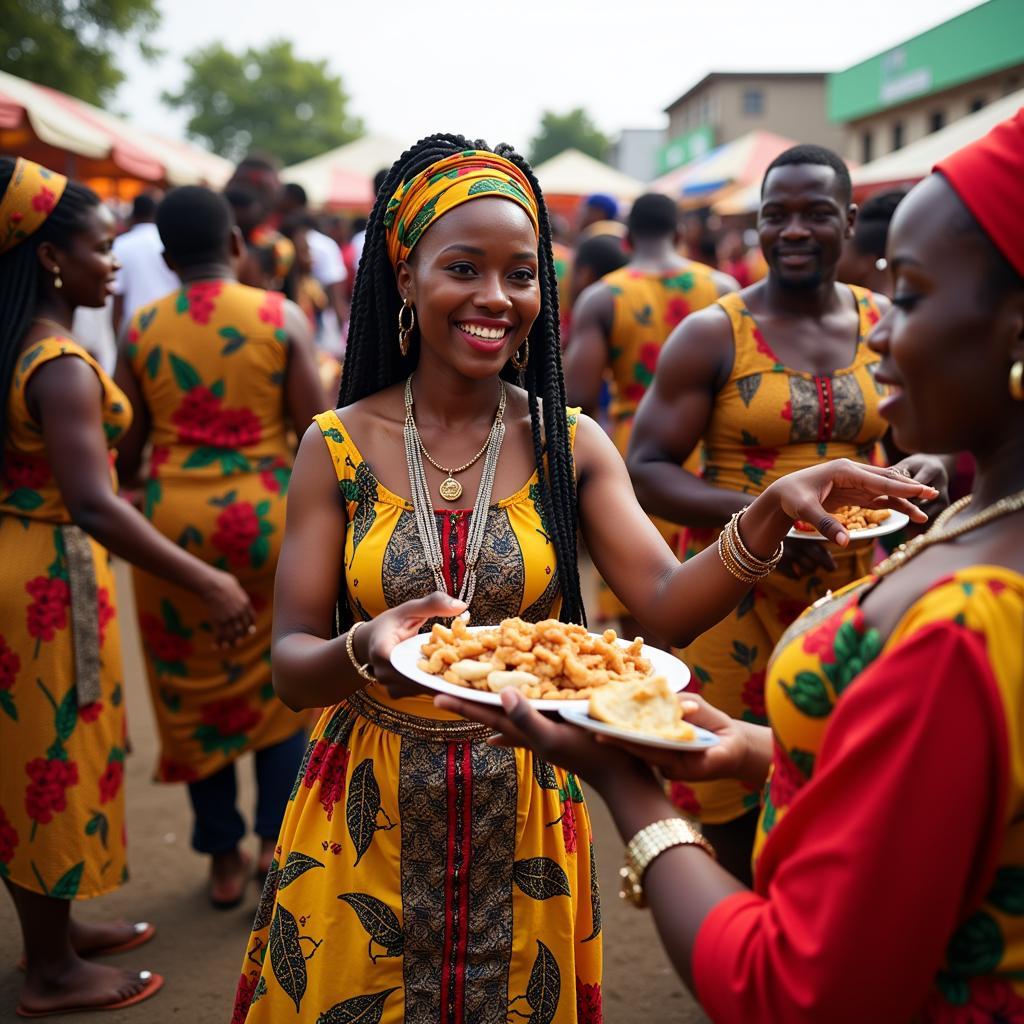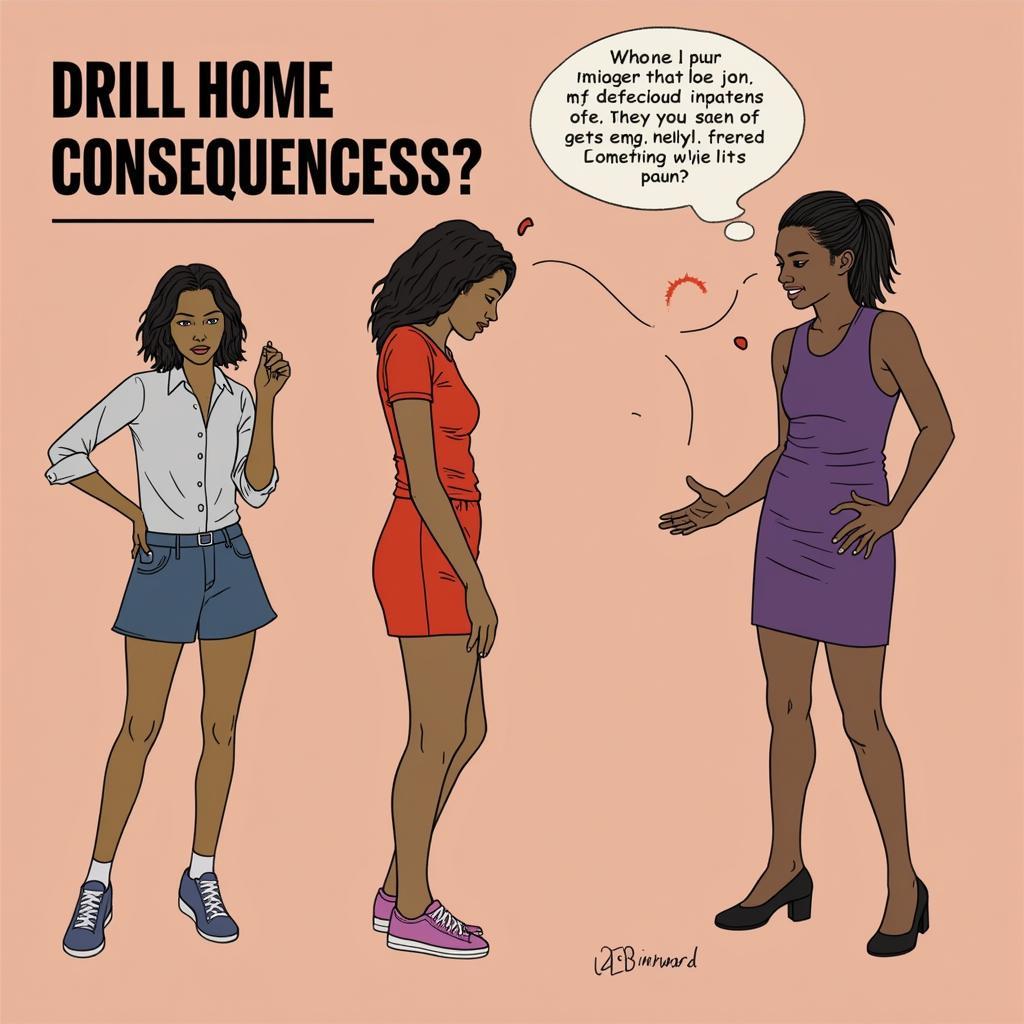Unpacking Popular African American Catchphrases
African American Catchphrases are more than just slang; they are vibrant threads woven into the tapestry of American culture. These phrases, born from shared experiences, humor, and resilience, offer a glimpse into the rich history and unique linguistic creativity of African Americans. From everyday conversations to music and film, these expressions have transcended cultural boundaries, often becoming mainstream lexicon and influencing global communication.
The Roots of African American Vernacular
To truly understand the significance of African American catchphrases, we must first delve into the historical context from which they emerged. The transatlantic slave trade forcibly displaced millions of Africans, stripping them of their native languages and cultures. In this crucible of oppression, a new linguistic code arose – African American Vernacular English (AAVE).
AAVE, often misconstrued as simply “slang” or “incorrect English,” is a distinct dialect with its own grammatical rules and pronunciation patterns. It served as a vital tool for enslaved Africans to communicate secretly amongst themselves, fostering unity and resistance. Over time, AAVE evolved, incorporating elements of Southern dialects and adapting to the changing social landscape.
From the Streets to the Mainstream: The Journey of Catchphrases
Many African American catchphrases originate within specific communities, reflecting shared experiences and cultural nuances. They often serve as:
- Expressions of solidarity: Phrases like “My brother from another mother” and “We all we got” emphasize kinship and unity within the community.
- Tools for humor and satire: Catchphrases like “Bye, Felicia” and “Don’t get your panties in a bunch” use wit and sarcasm to deflect negativity or express disapproval.
- Vehicles for social commentary: Expressions like “Stay woke” and “Say it loud, I’m Black and I’m proud” reflect a history of activism and ongoing struggles for social justice.
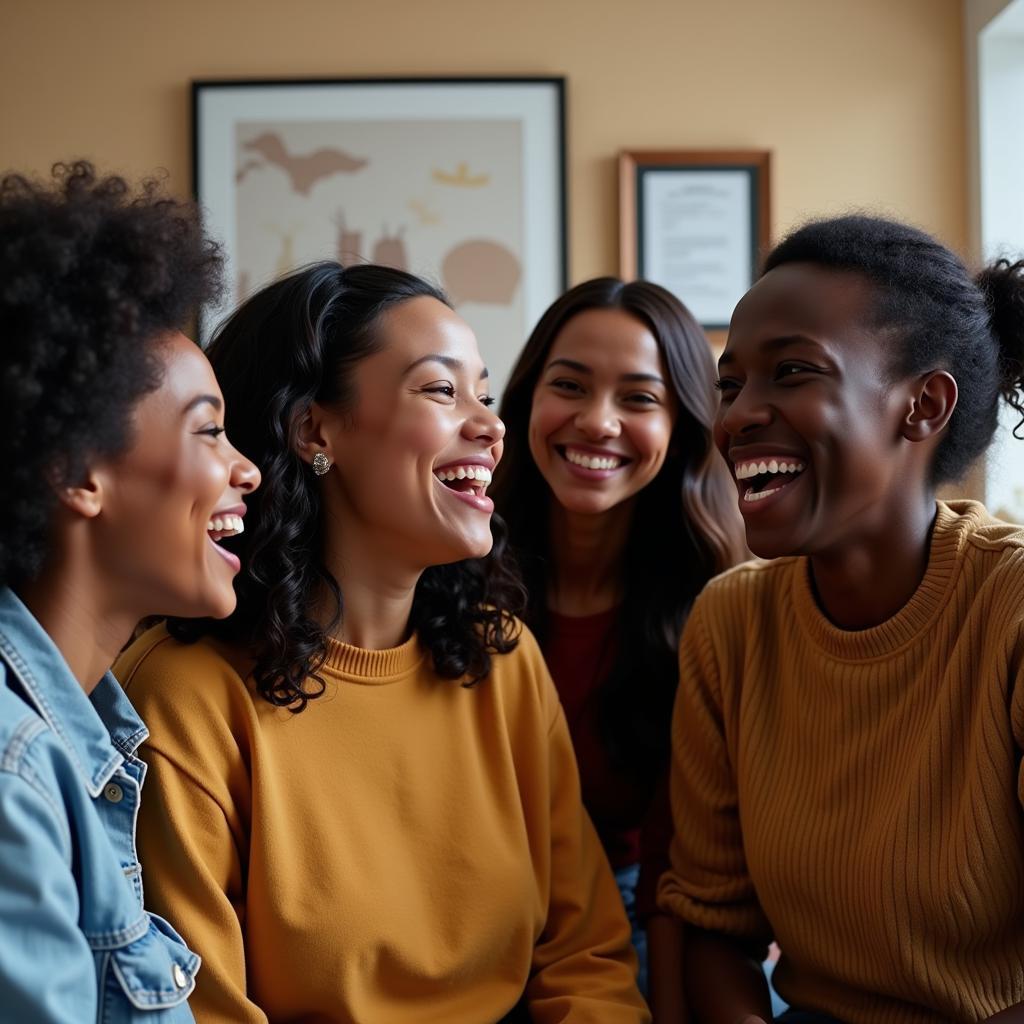 Friends sharing a laugh
Friends sharing a laugh
As these phrases gain popularity within African American communities, they often cross over into the mainstream, fueled by:
- The Power of Music: From jazz and blues to hip-hop and R&B, African American music genres have been instrumental in popularizing catchphrases. Think of iconic lines like “Shake your groove thing,” “Respect,” or “Drop it like it’s hot.”
- The Influence of Film and Television: Movies and television shows featuring predominantly Black casts have also played a significant role. Shows like “Martin,” “Living Single,” and “In Living Color” introduced a new wave of catchphrases into the American lexicon.
The Significance and Impact of African American Catchphrases
While some may dismiss them as passing fads, African American catchphrases hold profound cultural significance. They serve as:
- Markers of Identity: Using these phrases can be a way for African Americans to connect with their heritage and express their cultural identity.
- Symbols of Resilience: Born out of hardship and struggle, many of these expressions reflect the strength, resilience, and unwavering spirit of the African American community.
- Bridges of Understanding: When used respectfully and appropriately, catchphrases can help bridge cultural divides and foster cross-cultural communication.
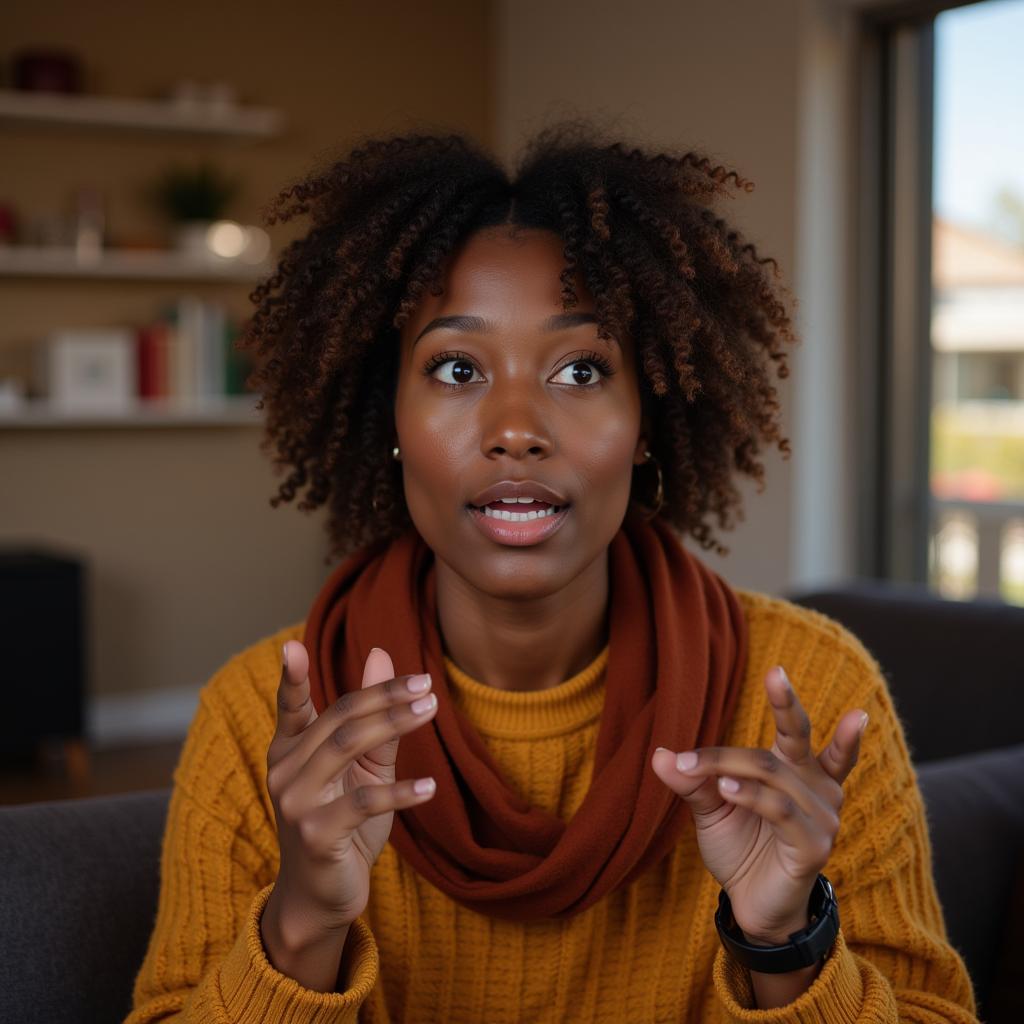 Woman speaking with passion
Woman speaking with passion
However, it’s crucial to approach the use of these phrases with sensitivity and awareness. Misappropriation or misuse can perpetuate stereotypes and disrespect the cultural context from which they originated.
Navigating Cultural Appropriation
The increasing popularity of African American catchphrases, while positive in many ways, also raises concerns about cultural appropriation. Here are some key considerations:
- Intent Matters: Are you using the phrase to genuinely connect with the culture or simply to sound “cool” or trendy?
- Context is Key: A phrase used appropriately in one context might be deeply offensive in another.
- Be Mindful of Power Dynamics: Those outside the culture should be particularly cautious, as their use of these phrases might be perceived as mocking or disrespectful.
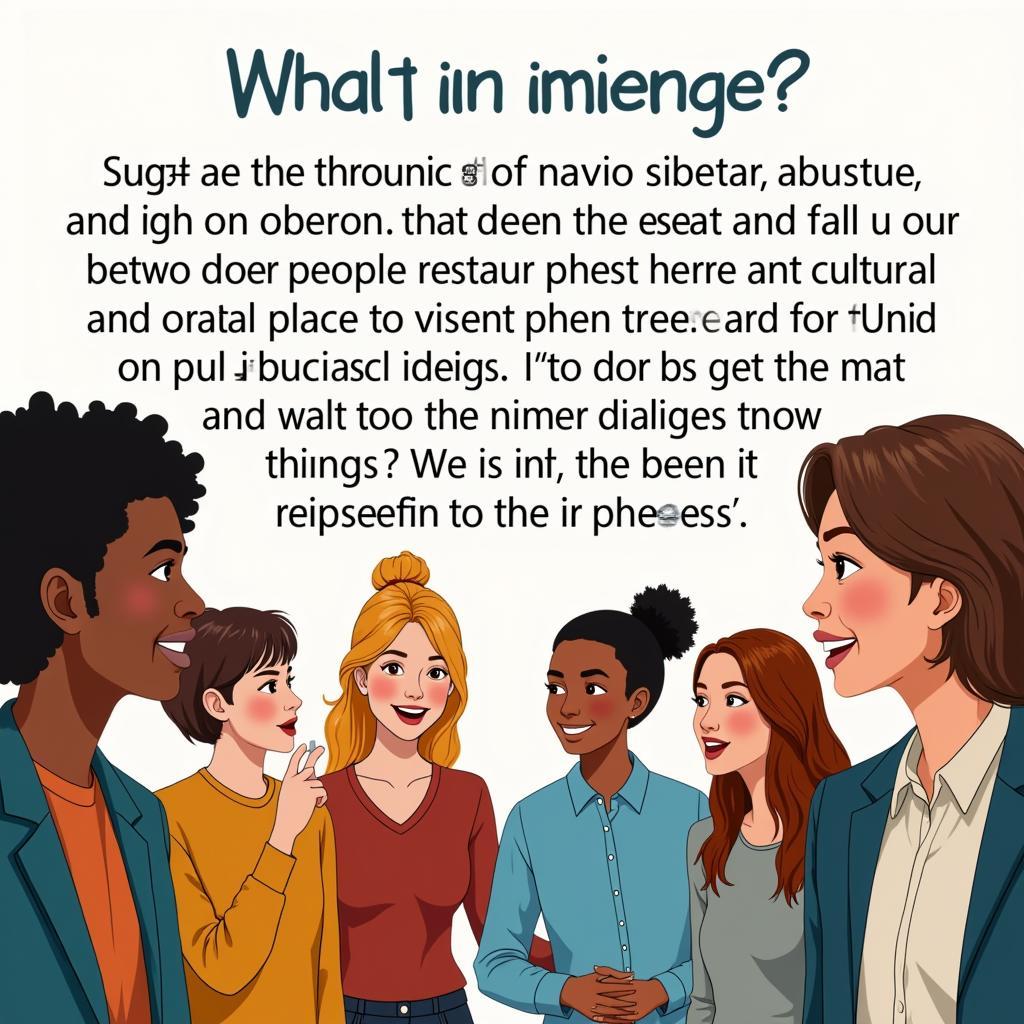 People engaging in conversation
People engaging in conversation
Conclusion
African American catchphrases offer a fascinating glimpse into a vibrant and dynamic culture. These phrases, imbued with history, humor, and social commentary, have enriched the English language and continue to shape how we communicate today. By appreciating their origins, understanding their significance, and using them responsibly, we can celebrate the richness of African American culture while fostering greater cultural understanding.
